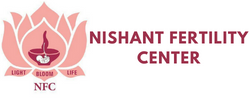Is IVF Right for You? Exploring Fertility Treatment Options

The journey to parenthood can take many different paths, and for some, it involves exploring fertility treatment options. In-vitro Fertilization (IVF) is one such option that has helped countless individuals and couples fulfill their dreams of having a family. However, it’s essential to understand that IVF is not the only route, and it may not be suitable for everyone. In this comprehensive guide, we will delve into the world of fertility treatments, including IVF, to help you determine which option may be right for you.
Understanding Fertility Challenges
Before exploring fertility treatment options, it’s crucial to recognize and understand the underlying causes of fertility challenges. Fertility issues can affect both men and women and may stem from various factors, including:
Female Factors: Common female fertility challenges include ovulation disorders, age-related decline in egg quality, blocked fallopian tubes, and endometriosis.
Male Factors: Male infertility can result from issues such as low sperm count, poor sperm motility, or structural abnormalities.
Unexplained Infertility: It refers to cases where infertility persists without a clear cause, even after extensive testing.
Couples’ Factors: Fertility can be influenced by the combination of factors from both partners.
Understanding the specific challenges you face is the first step toward finding the right fertility treatment.
The Range of Fertility Treatment Options
Fertility treatment options extend beyond IVF and can be tailored to address individual needs. These options include:
Lifestyle Changes: In some cases, making lifestyle adjustments such as weight management, diet, and reducing stress can have a significant impact on fertility.
Fertility Medications: Medications like Clomid or letrozole are often used to stimulate ovulation and regulate the menstrual cycle.
Intrauterine Insemination (IUI): IUI involves placing washed and concentrated sperm directly into the uterus during the woman’s fertile window, increasing the chances of fertilization.
IVF (In Vitro Fertilization): As discussed in detail later, IVF is a complex fertility treatment that involves retrieving eggs and fertilizing them outside the body before transferring the embryos into the uterus.
Intracytoplasmic Sperm Injection (ICSI): ICSI is often combined with IVF and involves injecting a single sperm directly into an egg.
Donor Sperm or Eggs: When one partner has infertility issues, using donor sperm or eggs can be a viable option.
Surrogacy: Surrogacy involves another woman carrying and giving birth to a couple’s child.
Adoption: Adoption is a non-biological way of becoming a parent and can be a rewarding path to parenthood.
Is IVF Right for You?
While IVF is a highly successful fertility treatment, it may not be the ideal choice for everyone. Consider the following factors when deciding if IVF is right for you:
Underlying Causes: Understanding the specific causes of infertility can help determine whether IVF is necessary. For example, if the issue is related to blocked fallopian tubes, IVF may be recommended.
Other Treatment Options: If less invasive treatments, such as fertility medications or IUI, have not been successful, you may consider IVF.
Age: Age plays a significant role in fertility. Women of advanced maternal age may benefit from IVF due to age-related declines in egg quality.
Male Infertility: IVF can effectively address male infertility issues, such as low sperm count or motility.
Emotional and Financial Considerations: IVF can place significant emotional and financial burdens on individuals or couples undergoing the treatment Consider the emotional and financial resources you are willing and able to invest in the treatment.
Support System: Having a support system, whether it’s friends, family, or a counselor, is crucial during fertility treatments.
Medical Advice: Consult with a fertility specialist to discuss your individual case and receive expert guidance.
The IVF Process
If you decide that IVF is the right choice for you, understanding the process is essential:
Ovarian Stimulation: Fertility medications are used to stimulate the ovaries, leading to the production of multiple eggs.
Egg Retrieval: The mature eggs are collected during a minor surgical procedure.
Sperm Collection: A sperm sample is provided by the male partner, and this sample is processed and prepared for the fertilization process.
Fertilization: Eggs and sperm are combined in a laboratory dish to create embryos.
Embryo Culture: The embryos are cultured for several days to allow for growth and development.
Embryo Transfer: The best-quality embryos are selected and transferred into the woman’s uterus.
Pregnancy Test: A blood test is conducted to determine if the IVF procedure was successful.
Emotional and Psychological Considerations
Fertility treatments, including IVF, can be emotionally challenging. It’s crucial to be prepared for the emotional rollercoaster that may accompany the process. Seeking emotional support through counseling or support groups can help you cope with the ups and downs of the journey.
Conclusion
Choosing the right fertility treatment, whether it’s IVF or another option, is a significant decision. It’s a personal journey, and no one solution fits all. By understanding the range of fertility treatments available and consulting with a fertility specialist, you can make an informed decision that aligns with your goals and circumstances. Remember, the path to parenthood may have its challenges, but with the right approach and support, your dream of having a family can become a reality.
Book an Appointment with Fertility Specialist Dr. Nishant Dixit.
